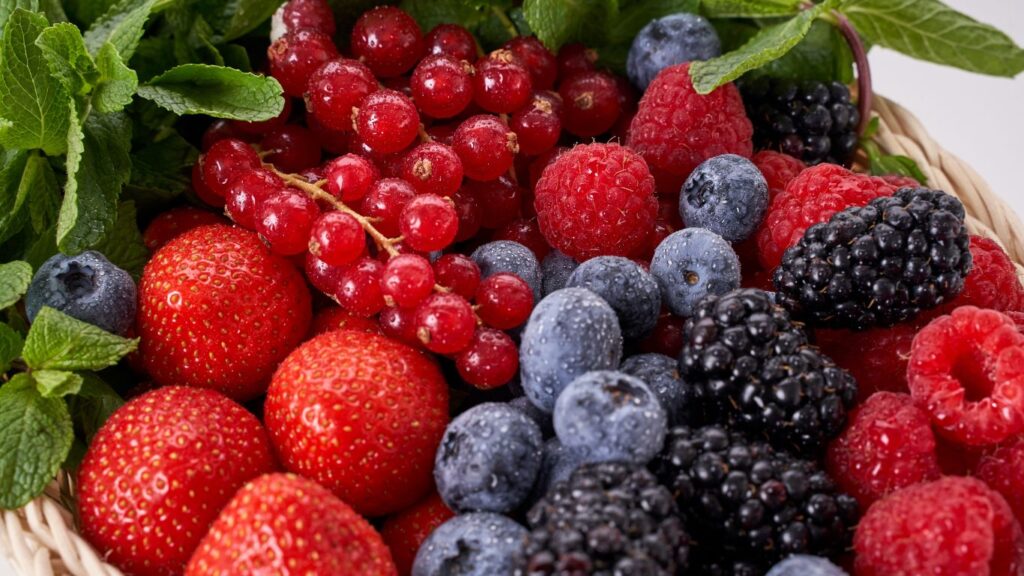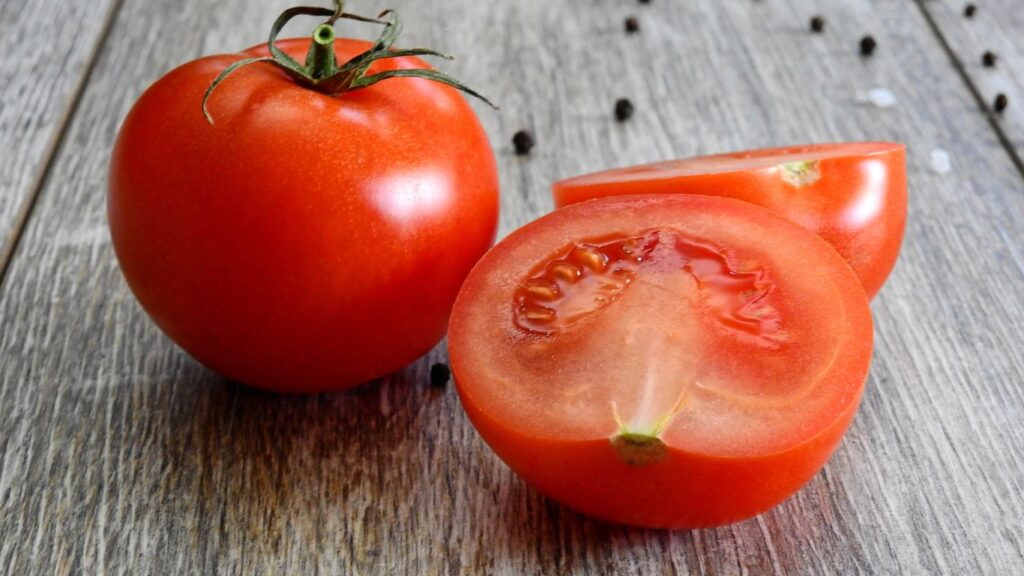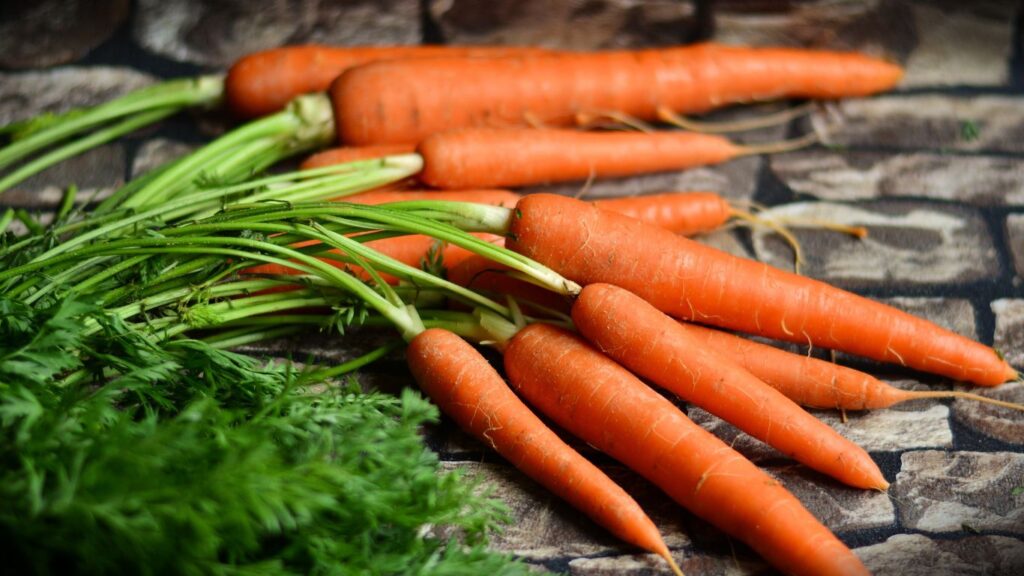During summer, our skin is exposed to various elements that can compromise its health, including increased UV radiation, higher temperatures, and humidity. These factors can lead to dehydration, sunburn, and accelerated aging. Consequently, maintaining skin health becomes crucial to protect against damage and keep our skin looking radiant and healthy. Nutrition plays a pivotal role in this regard. A diet rich in vitamins, antioxidants, and hydration can fortify the skin’s defense against environmental stressors. Consuming foods high in water content, like cucumbers and watermelons, helps maintain hydration, while antioxidants found in berries and leafy greens can protect against UV damage and support skin repair. Omega-3 fatty acids, present in fatty fish, can reduce inflammation, aiding in the prevention of sun-induced skin damage. Incorporating these nutrient-dense foods into our summer diet can significantly enhance our skin’s health, resilience, and appearance, safeguarding it against the harsh impacts of the season.
Top 5 Summer Foods Which Directly Enhance Skin Health
1. Watermelon
Watermelon stands out as a quintessential summer fruit, primarily due to its remarkably high water content, which exceeds 90%. This feature makes it an excellent choice for staying hydrated during the hot summer months. The hydration benefits of watermelon extend beyond mere water intake; it also delivers essential nutrients that support skin health. Proper hydration is crucial for maintaining the skin’s elasticity and suppleness, preventing dryness and keeping the skin looking youthful and vibrant. Consuming watermelon can thus help counteract the dehydrating effects of the summer heat, ensuring that the skin remains hydrated and well-nourished.

Beyond hydration, watermelon is a valuable source of lycopene, a potent antioxidant with significant skin-protective qualities. Lycopene is particularly effective in safeguarding the skin against the harmful effects of UV radiation, which is more intense during summer. It works by neutralizing free radicals generated by sun exposure, thereby reducing the risk of sunburn and minimizing the potential for long-term UV-induced skin damage. This dual action of lycopene, combined with the fruit’s high water content, positions watermelon as an essential dietary component for those seeking to enhance their skin health and protect against the environmental challenges of summer.
2. Cucumbers
Cucumbers are synonymous with hydration and cooling, making them an ideal skin-care ally, especially during the warmer seasons. Their high water content, which is over 95%, ensures that consuming cucumbers helps maintain optimal hydration levels within the body and by extension, the skin. This hydration is vital for maintaining the skin’s moisture barrier, keeping it soft, supple, and less prone to dryness and irritation. The cooling effect of cucumbers is not just folklore; applied topically or ingested, cucumbers can help soothe sunburned skin or simply provide a refreshing respite from the heat, reducing swelling and calming irritated skin.

Moreover, cucumbers are a significant source of silica, a trace mineral that plays a critical role in strengthening the skin’s connective tissues, thereby promoting skin elasticity and hydration. Silica helps to form the backbone of collagen, ensuring the skin remains firm and youthful. Additionally, its hydrating properties are enhanced by its silica content, aiding in retaining moisture and contributing to the overall hydration status of the skin. Thus, incorporating cucumbers into your diet or skincare routine can offer dual benefits: a natural cooling effect that soothes the skin and a boost in skin hydration and elasticity, thanks to its silica content.
3. Berries
Berries, such as strawberries, blueberries, and raspberries, are treasure troves of antioxidants, particularly vitamins C and E, which are instrumental in skin health and regeneration. Vitamin C is a powerhouse when it comes to the production of collagen, a vital protein that helps keep the skin firm, plump, and youthful. By stimulating collagen synthesis, vitamin C aids in maintaining the elasticity and strength of the skin, reducing the appearance of fine lines and wrinkles, and promoting a smooth, radiant complexion.
Vitamin C is also renowned for its ability to repair damaged skin cells and prevent further harm caused by UV radiation and pollution, thanks to its potent antioxidant properties. This makes berries an essential dietary addition for anyone looking to protect their skin against environmental stressors and the signs of aging.

Vitamin E complements the skin-protective effects of vitamin C by providing a defense against UV-induced damage and helping to moisturize the skin. It strengthens the skin’s barrier function, reducing water loss and keeping the skin hydrated and resilient. The synergistic action of vitamins C and E found in berries forms a powerful defense mechanism, safeguarding the skin from oxidative stress, encouraging repair, and ensuring the skin remains healthy and vibrant. Including berries in your diet can thus offer comprehensive benefits, from enhancing skin repair to boosting collagen production and preventing damage.
4. Tomatoes
Tomatoes are a rich source of lycopene, an antioxidant with remarkable sun-protective benefits. Lycopene is known for its ability to absorb both UVA and UVB radiation, offering a degree of protection against sun damage. This powerful antioxidant works by neutralizing harmful free radicals produced when the skin is exposed to sunlight, thereby reducing the risk of sunburn and long-term sun-induced skin aging. The sun-protective properties of lycopene make tomatoes an excellent dietary addition for those seeking to fortify their skin against the harsh effects of the sun, especially during the summer months.

Apart from lycopene, tomatoes are also a good source of vitamin C, another essential nutrient for skin health. Vitamin C plays a pivotal role in collagen production, the protein responsible for the skin’s firmness and elasticity. By promoting collagen synthesis, vitamin C not only helps repair damaged skin cells but also supports the maintenance of healthy, resilient skin. The presence of vitamin C in tomatoes complements the sun-protective benefits of lycopene by contributing to the skin’s ability to repair itself and reduce the appearance of wrinkles, leading to a smoother, more youthful complexion.
Including tomatoes into your diet can, therefore, provide a dual benefit: protecting the skin from sun damage while promoting its natural regeneration process through enhanced collagen production.
5. Carrots
During the summer months, when the skin is particularly vulnerable to environmental stressors such as UV radiation and dehydration, carrots emerge as a potent ally for skin repair and protection. This benefit is primarily due to the high content of beta-carotene found in carrots, a powerful antioxidant that the body converts into vitamin A. This conversion is crucial for several reasons. First, vitamin A is essential for the regeneration of skin cells, facilitating the repair of skin damaged by sun exposure by promoting the replacement of old, damaged cells with new, healthy ones. This process is vital for maintaining the skin’s health and youthful appearance.
Moreover, the antioxidant properties of beta-carotene in carrots play a significant role in protecting the skin from the oxidative stress caused by free radicals, which are more prevalent during sun exposure in the summer. By neutralizing these harmful molecules, carrots help prevent premature skin aging, such as the development of wrinkles and fine lines.

Vitamin A from beta-carotene enhances the skin’s immune response, improving its ability to heal from sunburns and other minor injuries more efficiently. This makes carrots an excellent dietary addition for anyone looking to support their skin’s health and repair mechanisms during the challenging summer months, ensuring it remains resilient, hydrated, and radiant.
Conclusion
As we navigate through the warm summer months, incorporating above mentioned foods into our diet can significantly enhance our skin’s health, resilience, and appearance. From the hydrating properties of watermelon and cucumbers to the antioxidant-rich berries, and from the sun-protective lycopene in tomatoes to the beta-carotene powerhouse found in carrots, each food offers unique benefits that cater to our skin’s needs during summer. By embracing these nutritional powerhouses, we equip our skin with the necessary tools to combat the summer’s challenges, ensuring it remains hydrated, protected, and radiant. Remember, a healthy outside starts from the inside, making these top 5 foods essential additions to your summer diet for glowing skin.
Also read: Eat Your Way to a Longer Life: The Best Foods for Longevity and Age-Defying Health
